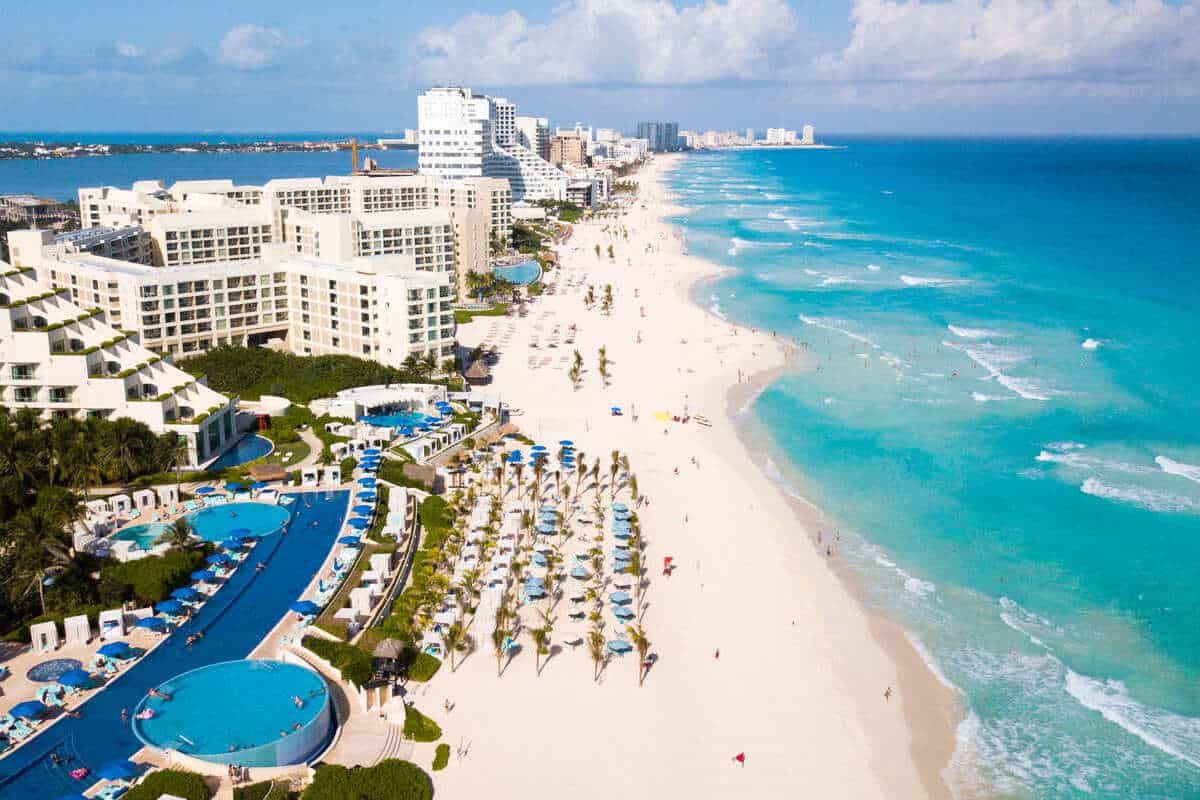For years now, Cancun has been the number one tourist destination for Americans going abroad, renowned for its luxurious resort zone, world-class amenities, and of course, the miles on miles of sandy beaches bounded by the turquoise-colored Caribbean Sea.
Its popularity has extended well into 2023, even after the world’s wider reopening for tourism and other countries’ return to the competition. This year, as many as 20.5 million visitors are expected to visit the wider state of Quintana Roo, proving the Caribbean giant is still at the top of its game.
It may already be the King of Tourism, but with the diversification of the tourist offer elsewhere in Mexico,it looks set to get a new lead on its competitors due to 4 new reasons:
Revitalization Of The Tajamar Boardwalk

One of the biggest complaints among those vacationing in Cancun is how the city feels largely underdeveloped, with potholed streets and poor walkability beyond the resort walls. That’s why a majority of tourists often restrict their movements to the glitzy Hotel Zone.
Soon enough, Cancun’s urban infrastructure problems will be formally addressed, with more parts of the city set to be revitalized, from municipal parks to smaller beaches away from the main one, the well-frequented Playa Delfines, though the one we’re most excited about is the Tajamar Boardwalk project.

Currently, it makes for a pleasant leisurely stroll on the waterfront with views of the turquoise ocean, but there are no noteworthy amenities or tourist attractions along the ‘malecon’, at least for now.
In the near future, over $700,000 will be invested in making the boardwalk more attractive.
This may involve the widening of pedestrian and cycling paths, the introduction of restaurants and bars to the area, which borders the landmark Nichupte Lagoon, and open green spaces for the promotion of outdoor activities.
Free WiFi At The Beach

Cancun is not exactly renowned for the speed of its public WiFi, particularly in beach zones outside resort complexes, where connectivity can be remarkably weak. Unless you have a generous data package to see you through excursions out of your hotel, you could be left disconnected from the online world.
That’s not necessarily a bad thing, as a majority of tourists landing in the Caribbean are actively seeking to disconnect and take in the natural surroundings, but it can be a bit of a nuisance too.
Luckily, Cancun authorities have been paying attention to feedback and are now installing WiFi antennas along the Hotel Zone.

By the end of August, two of the busiest beaches in Cancun, Kilometer Zero and Playa Delfines, will be served by GigNet, a popular infrastructure provider in Mexico known to have introduced optical fiber to the Caribbean provinces.
While you shouldn’t exactly expect fast-speed internet in public spaces, at least now you won’t need to rush to the next convenience store to buy more data if your package suddenly expires.
Reopening Of Las Coloradas
After months of being closed off to tourists due to environmental concerns, the famous Las Coloradas are finally open again and hosting tourists.

One of the most popular day trips from Cancun and a top-rated attraction in the Yucatan Peninsula, it sits on the shores of the Gulf of Mexico.
Other than the verdant nature reserves that border it, the Las Coloradas lakes are, of course, best known for their bubblegum pink-colored hue, as a result of a combination of red algae native to salt lakes and tiny shrimp that inhabit the incredibly salty waters.
Last March, access to the site was closed due to disagreements between tourist guides and the salt company that oversees the landmark. These seem to have been resolved now, allowing for the return of visitor groups.

Day tours to Las Coloradas can be booked from Cancun through the numerous tour companies and private, certified guides that operate in the city, as well as Rio Lagartos, the nearest major city, and as far away as Merida, the capital of the state of Yucatan.
A New Tourist Train Launching
Finally, tourists can expect connectivity traveling to and from Cancun to improve from this December when the long-awaited Maya Train is set to launch.
Traveling on a loop around the Yucatan Peninsula, the train will call at all of the main tourist stops and as many as 34 stations, including Cancun and Cancun International Airport, making it a lot easier for passengers arriving at the Mayan Riviera to reach other destinations on the coast.

The train will run parallel to the ocean and, in some sections, over a viaduct, offering panoramas of the verdant scenery below, Mayan ruins, and open-air cenotes, and should leave each station every two hours, from 6 am to 10 pm daily.
Official ticket fares have not yet been announced, but earlier reports indicate they may cost between 60 and 80 Mexican pesos. Learn more about the Maya Train and how it will transform travel in the Mexican Caribbean here.

